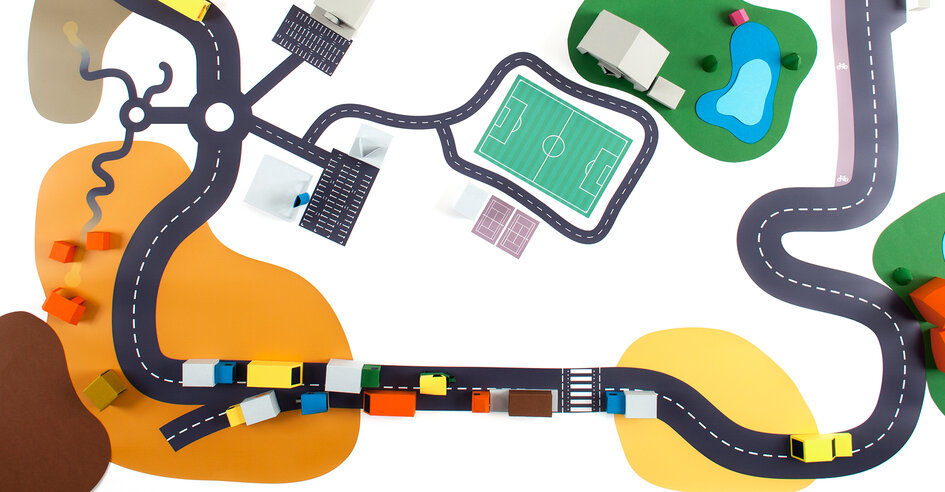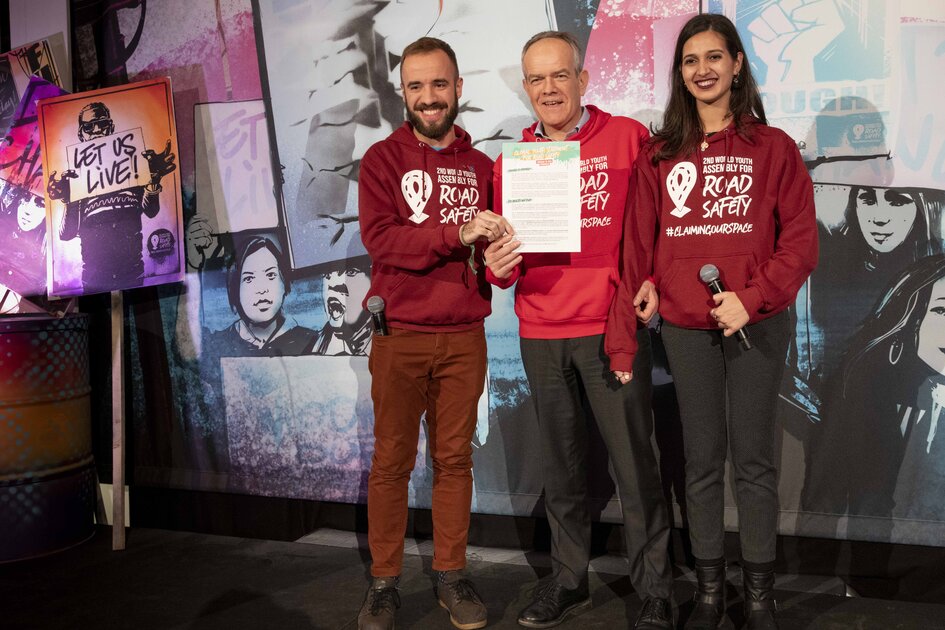Working for More Connected Regions: Training of Trainers
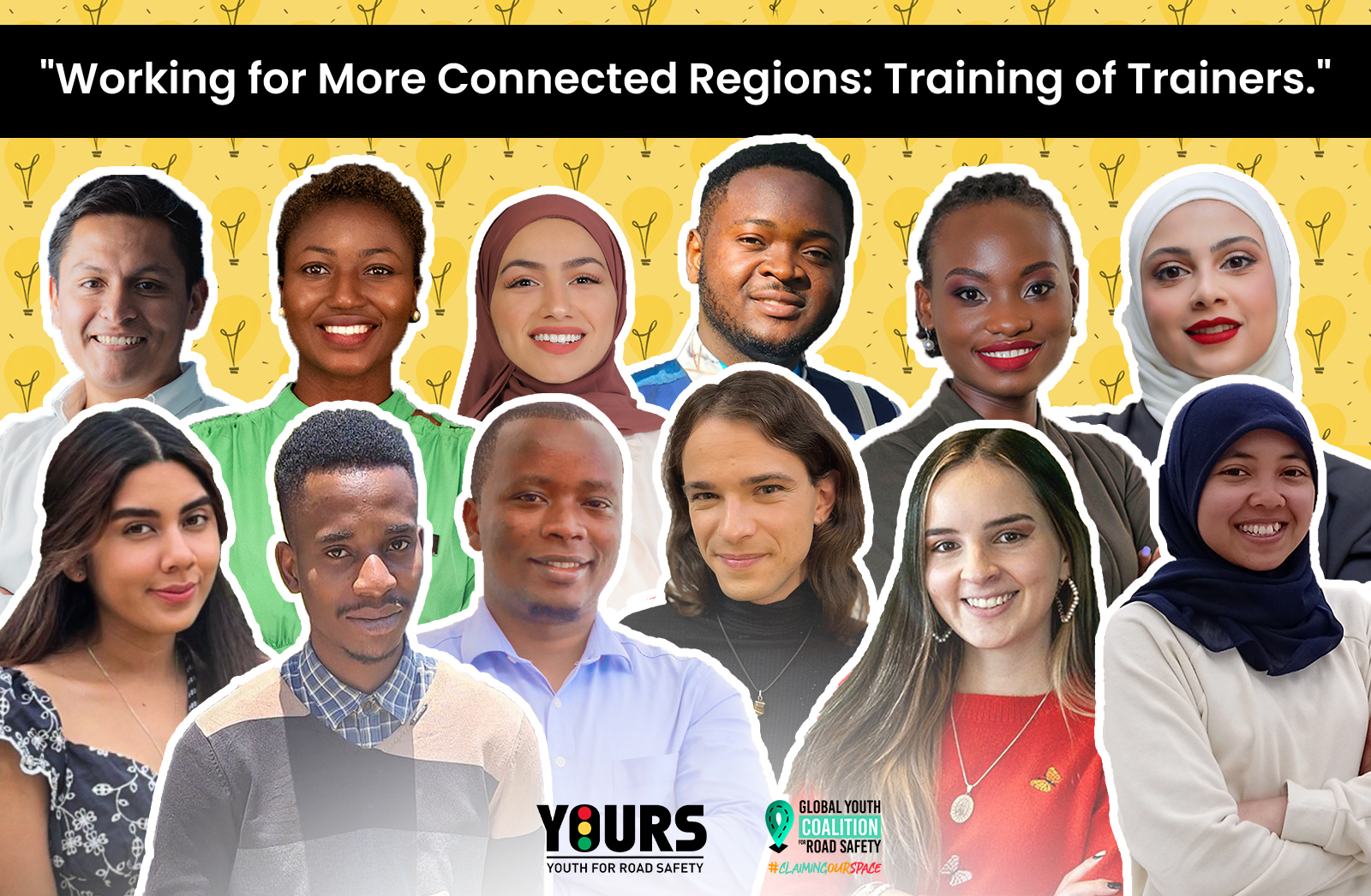
Introducing the Training of Trainers (ToT) Programme—a total game-changer for the Coalition’s Regional Leaders who will democratise how young leaders receive training across the world. This initiative gives twelve young leaders the skills and know-how to train their peers in all things road safety through online sessions overcoming barriers of language, time and geographical issues.
We’re stepping things up with our very own capacity development methodology by sharing key theories on how people learn using our award-winning methodology. We’re working closely with 12 young leaders providing the tools and knowledge they need to run awesome and engaging sessions. Regional leaders improved their facilitation skills through a tailored curriculum where they will dive into online learning packed with cool stuff on team-building, peer education, facilitation, planning live sessions, and more. In short, we’re getting them ready to lead and inspire!
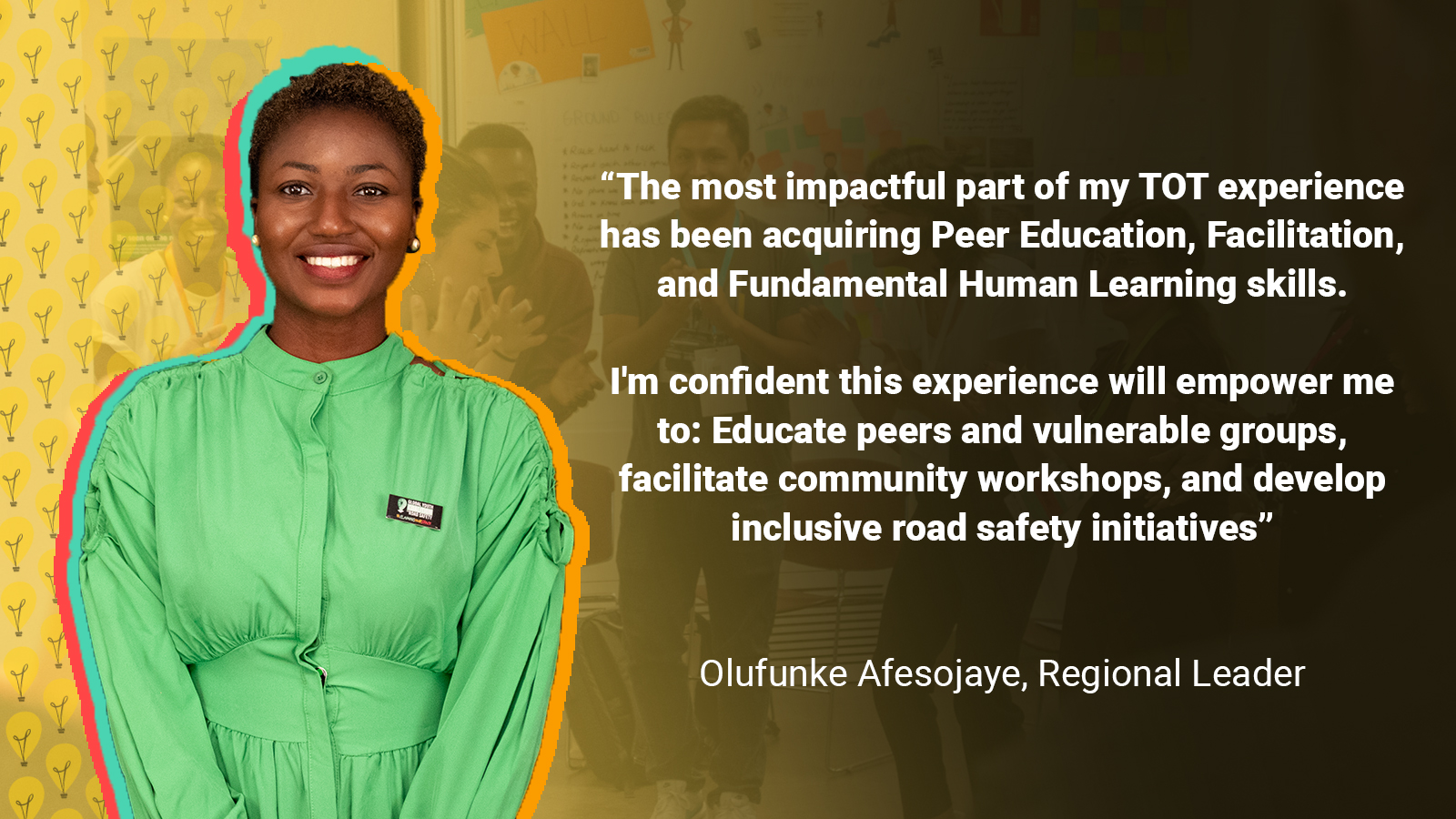
Why this matters:
Let’s face it—bringing together youth from all over the world isn’t always easy. Time zones, language differences—there are loads of things that can make it tricky to attend. With this programme, YOURS is making sure that the Coalition’s Regional Leaders are empowered to overcome these challenges. By doing so, we’re helping the Coalition strengthen its impact locally, giving each region the chance to drive change that fits its unique needs and addresses localised issues.
“This Training of Trainers is all about responding to what our Coalition members need. We’re constantly listening to ways to improve our reach and impact and the Regional Leaders prove to be a power link as peer-educators, that being people who look, sound and face similar challenges to themselves in the region. Through the programme, we will be closer to our regions in terms of training and capacity development”. Manpreet Darroch, Capacity Development Director.
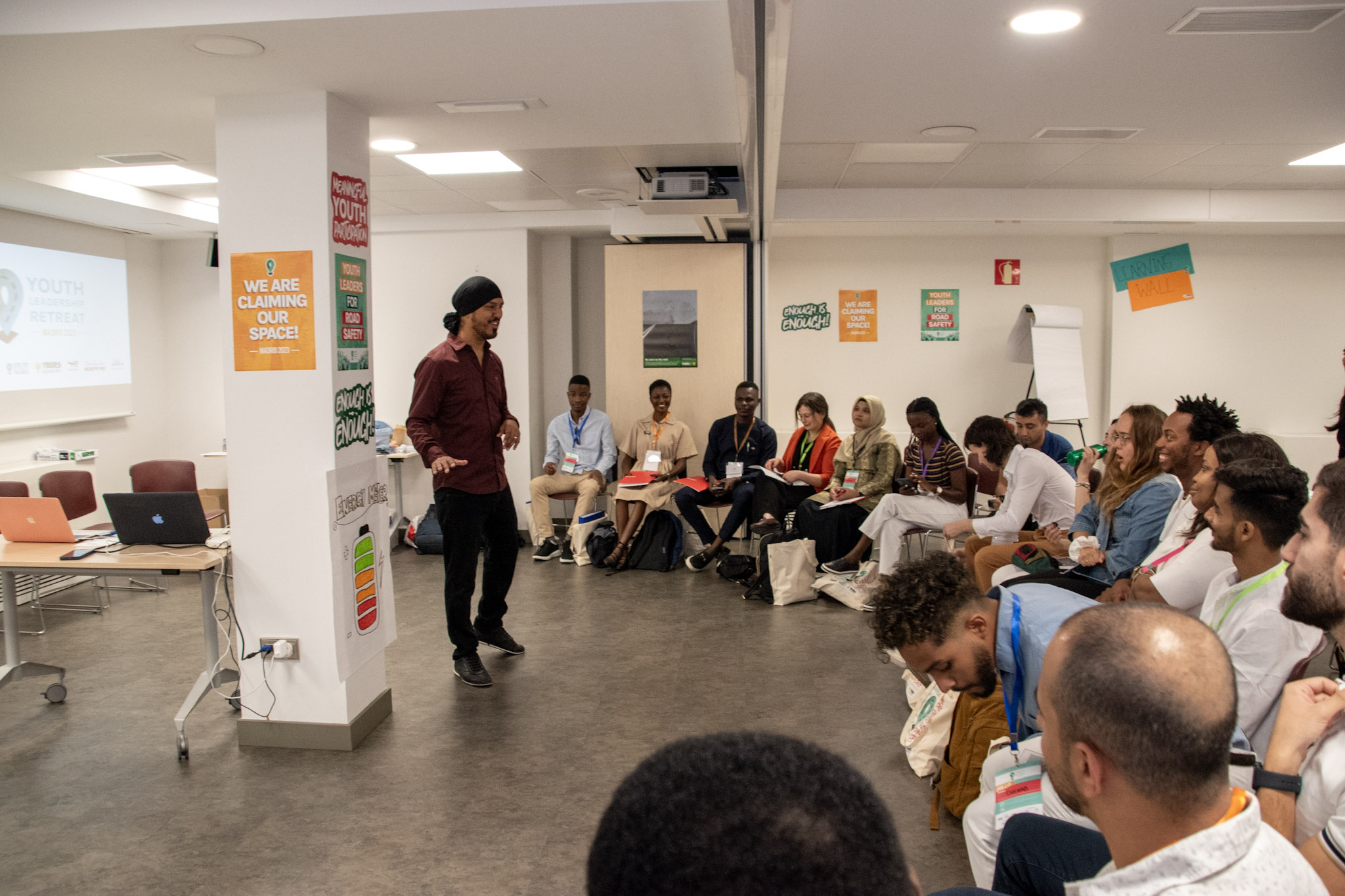
“Thinking of this Program one year from now, and now being able to deliver it and see it come to life has been a rewarding experience. This is our first time running a ToT fully online, for Trainers to deliver online sessions, so we definitely enjoyed thinking about how to put the content together, making sure it is interactive and useful for the regional leaders’ mission. We are also very inspired to see their commitment and excitement to start delivering their localised live sessions” Daniela Gómez, Capacity Development Manager.
The GATE model—which stands for Getting Set, Acquiring Information, Testing, and Ending—breaks down learning into four simple steps.
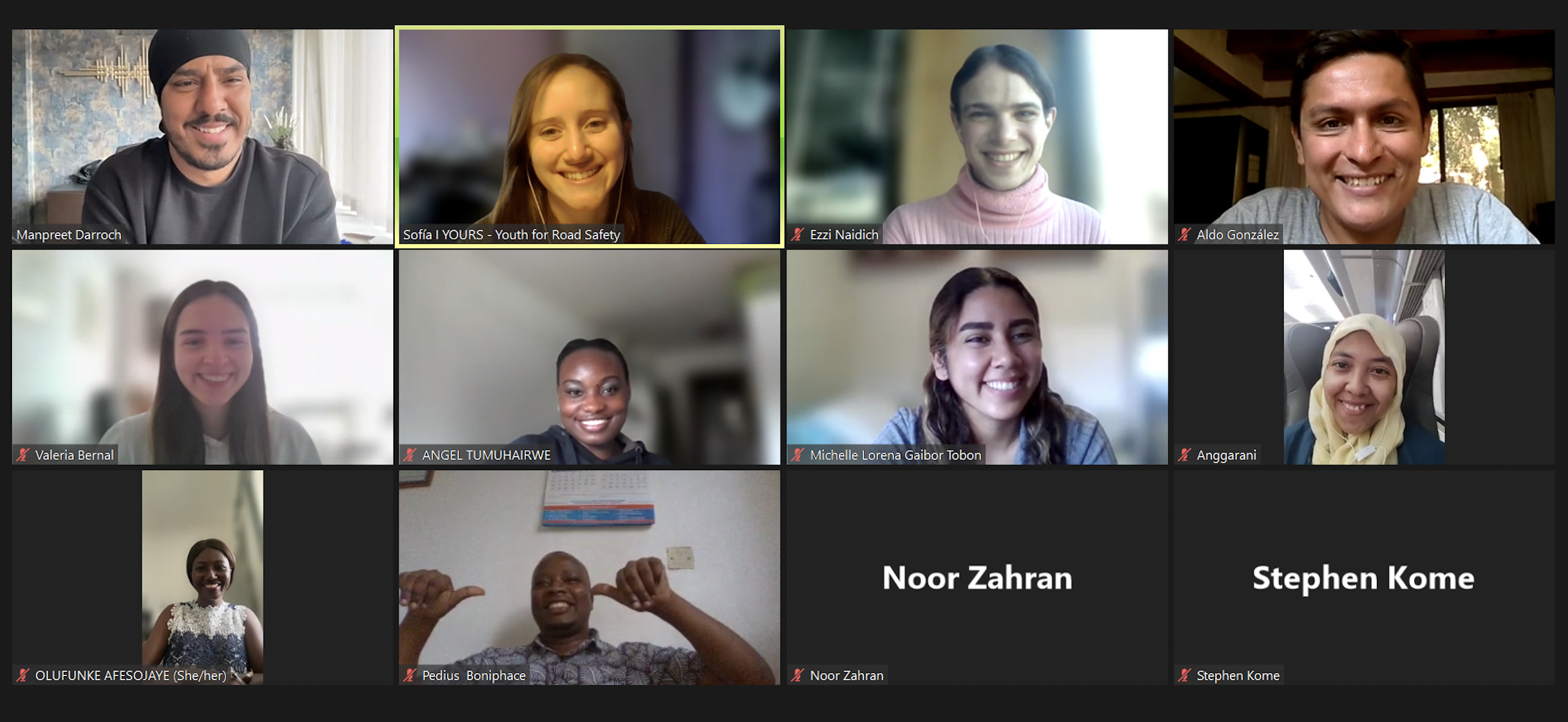
Whether you learn best by doing, watching, or listening, this model makes sure every leader gets the most out of the experience in a way that works for them. It’s learning made fun, engaging, and—most importantly—effective.
These twelve young leaders aren’t just learning—they’re gearing up to share what they’ve learnt with other Coalition members. Through this training from YOURS, they’ll be able to lead sessions that are tailored to their communities, spreading road safety knowledge in ways that make sense for their local context. It’s not just about teaching—it’s about skilling youth-led movements to spark real action based on evidence, knowledge and data.
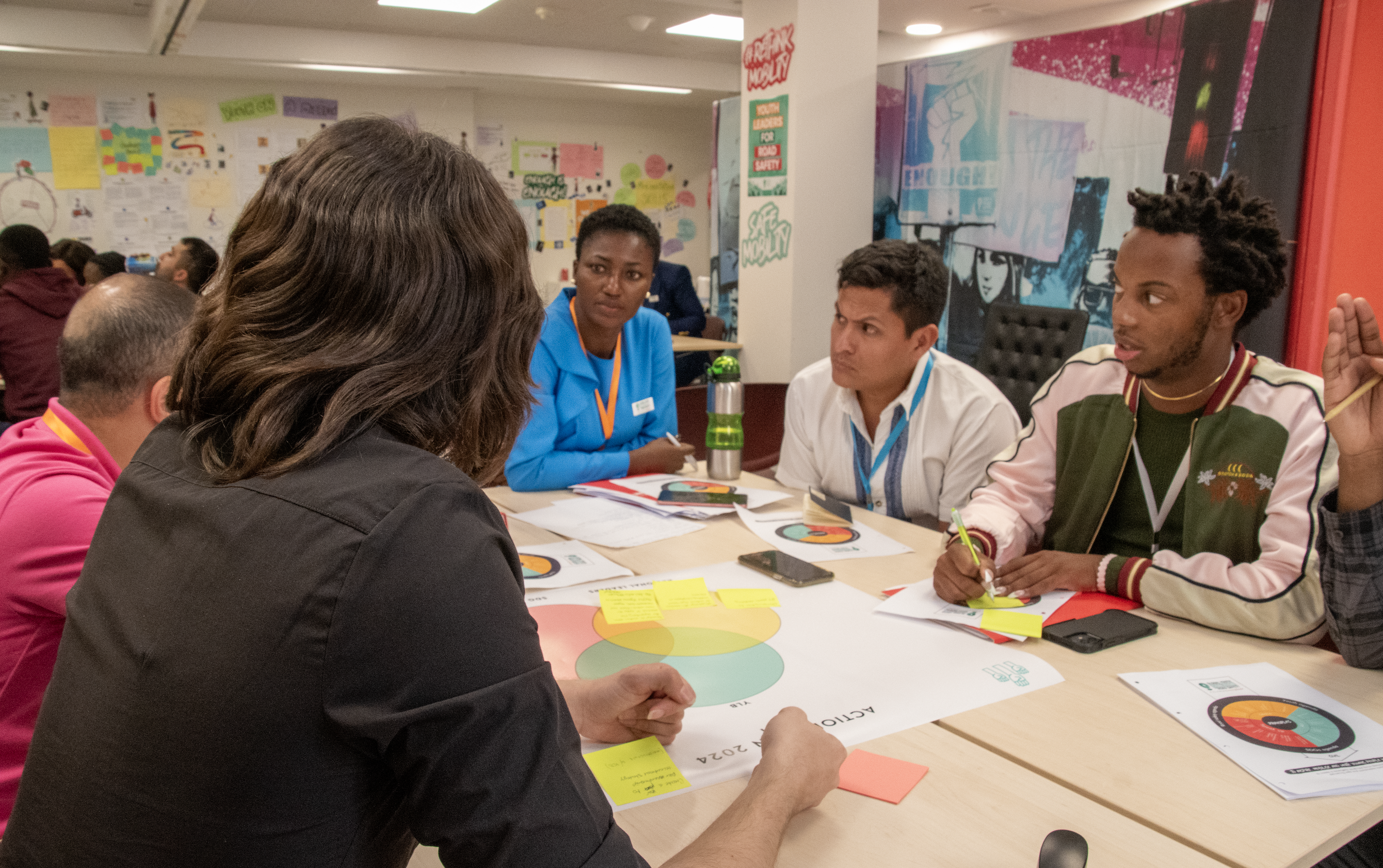
What’s next?
The YOURS ToT Programme kicked off in August, and the sessions that qualified Regional Leaders to train others wrapped up by the end of September. But this is just the beginning. Starting in November, these leaders will take charge, hosting “localised live sessions” through to July 2025. They will be adapting what they’ve learned to the needs of their regions, ensuring that global road safety best practices are translated to a local level.
As we gear up for these localised sessions, we invite you to stay tuned and be part of the action. Starting this November, you’ll have the chance to join these youth-led sessions in your region, learn from our inspiring leaders, and be part of a movement that’s driving real change in road safety.
Don’t miss out—keep an eye out for more updates and get ready to jump in!

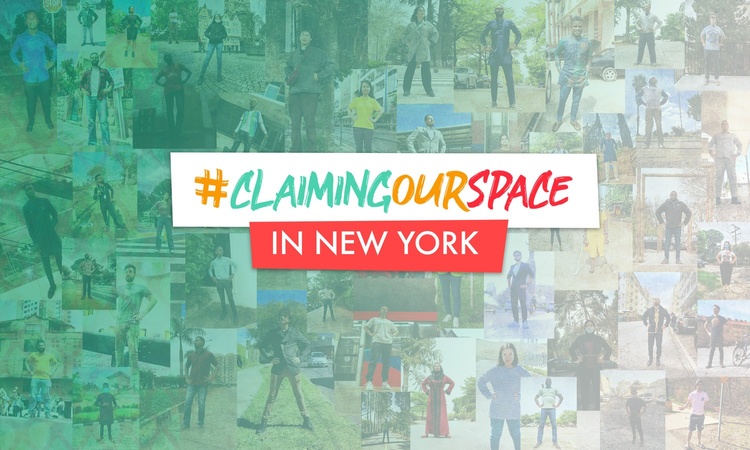


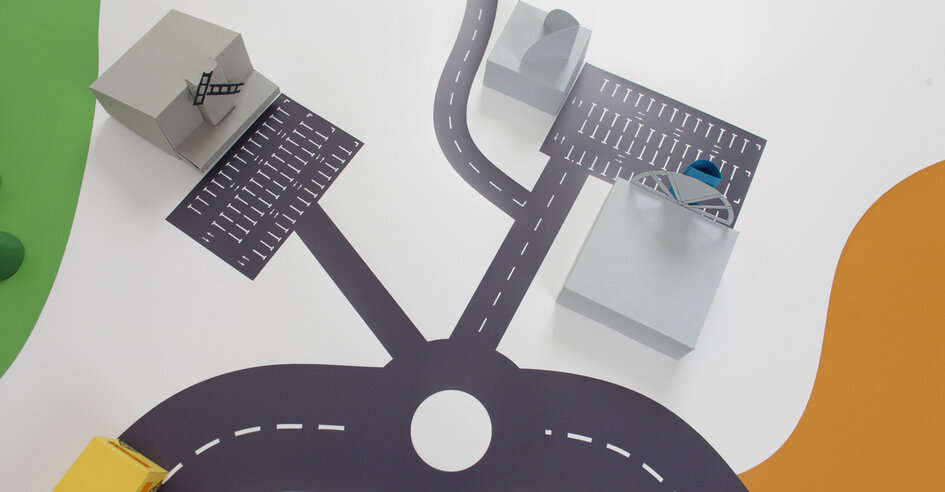


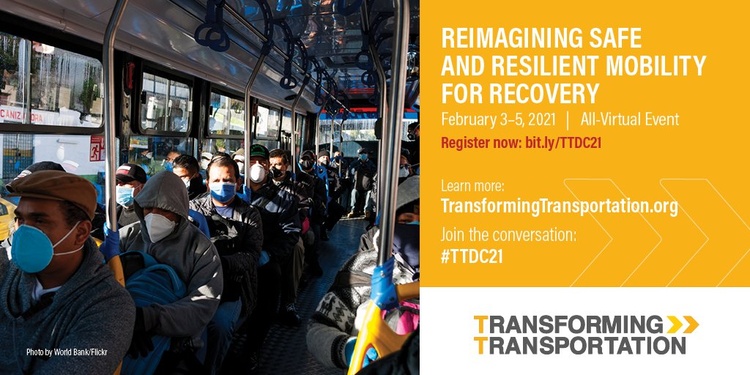

 Transportation, climate, and development
Transportation, climate, and development